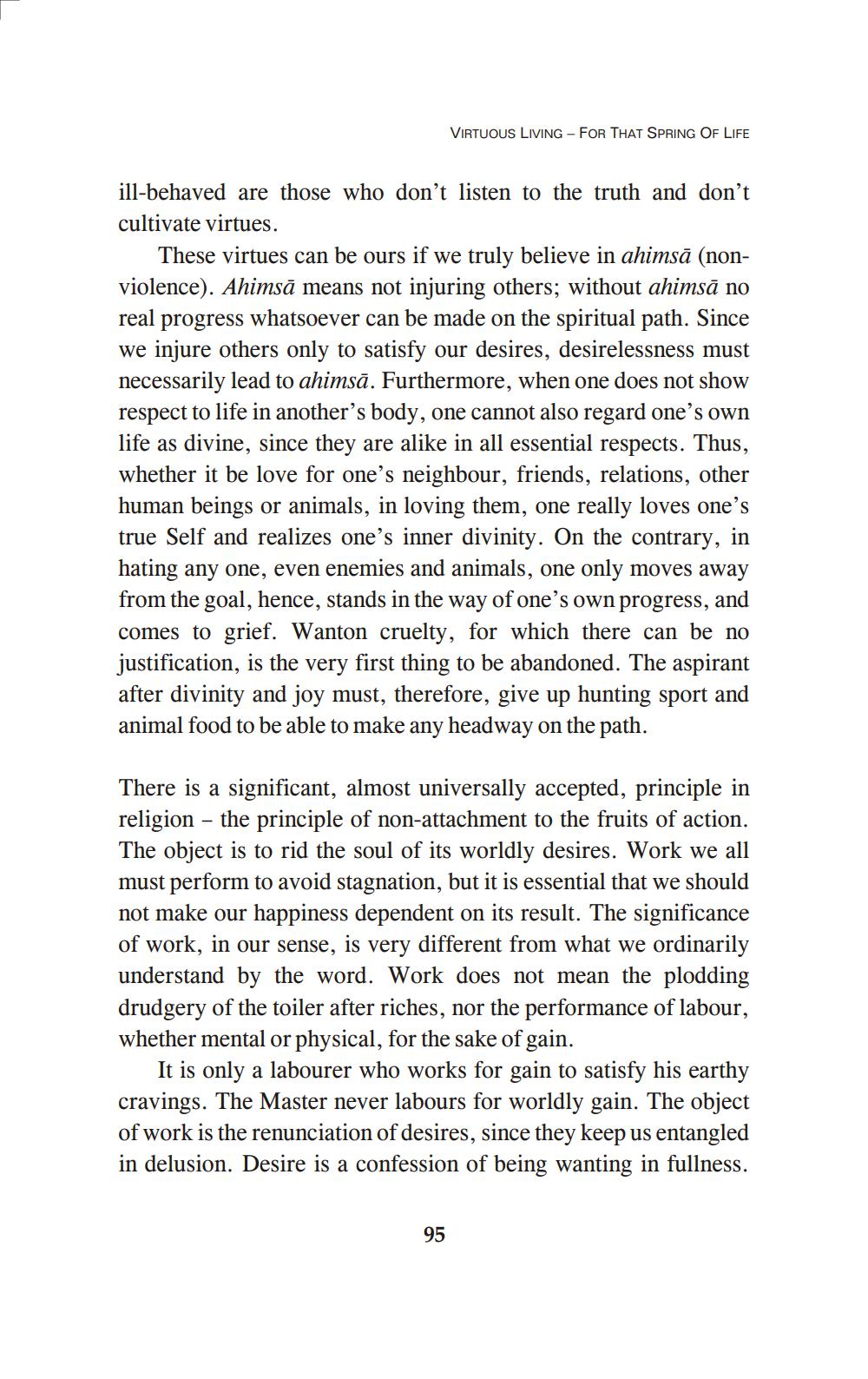________________
VIRTUOUS LIVING - FOR THAT SPRING OF LIFE
ill-behaved are those who don't listen to the truth and don't cultivate virtues.
These virtues can be ours if we truly believe in ahimsā (nonviolence). Ahimsā means not injuring others; without ahimsā no real progress whatsoever can be made on the spiritual path. Since we injure others only to satisfy our desires, desirelessness must necessarily lead to ahimsā. Furthermore, when one does not show respect to life in another's body, one cannot also regard one's own life as divine, since they are alike in all essential respects. Thus, whether it be love for one's neighbour, friends, relations, other human beings or animals, in loving them, one really loves one's true Self and realizes one's inner divinity. On the contrary, in hating any one, even enemies and animals, one only moves away from the goal, hence, stands in the way of one's own progress, and comes to grief. Wanton cruelty, for which there can be no justification, is the very first thing to be abandoned. The aspirant after divinity and joy must, therefore, give up hunting sport and animal food to be able to make any headway on the path.
There is a significant, almost universally accepted, principle in religion - the principle of non-attachment to the fruits of action. The object is to rid the soul of its worldly desires. Work we all must perform to avoid stagnation, but it is essential that we should not make our happiness dependent on its result. The significance of work, in our sense, is very different from what we ordinarily understand by the word. Work does not mean the plodding drudgery of the toiler after riches, nor the performance of labour, whether mental or physical, for the sake of gain.
It is only a labourer who works for gain to satisfy his earthy cravings. The Master never labours for worldly gain. The object of work is the renunciation of desires, since they keep us entangled in delusion. Desire is a confession of being wanting in fullness.
95




